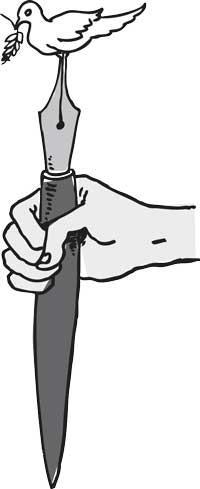04 May 2019 - {{hitsCtrl.values.hits}}
Amid an unprecedented catastrophe, which could be turned into a blessing with religious leaders holding regular dialogues on how to restore peace, harmony and unity in diversity, the United Nations yesterday marked World Press Freedom Day.

As Sri Lanka moves into the second week after the Easter Sunday massacres, about ten thousand security forces personnel are carrying out intensive operations to flush out a relatively small number of members connected to the two ISIS-linked terror groups.
An equally urgent need is for the media to play a responsible role with a commitment to fair, accurate and balanced reporting. Unfortunately, some media appear to be trying to whip up communal tension by giving a spin to stories, spotlighting the negatives, sensationalising some events and giving publicity to rabble-rousers.
According to the UN, World Press Freedom Day was proclaimed by the General Assembly in December 1993, following the recommendation of UNESCO’s general conference held at Windhoek in Namibia. Since then, May 3, the anniversary of the Declaration of Windhoek, is marked worldwide as World Press Freedom Day.
The UN says it is an opportunity to celebrate the fundamental principles of press freedom, assess the state of press freedom throughout the world, defend the media from attacks on their independence and pay tribute to journalists who have lost their lives in the line of duty.
The 2019 Theme is Media for Democracy: Journalism and Elections in Times of Disinformation. It is a timely theme for Sri Lanka. With democracy and freedom being restored, after the January 8, 2015 presidential election and the adoption of the 19th Amendment in April the same year, Sri Lanka received an opportunity to restore a process where the executive, the legislature, the judiciary and the media could play their time-honoured roles with checks and balances. But when the latest crisis hit Sri Lanka on Easter Sunday, instead of checks and balances, we were more in a situation of checks and imbalances. Bribery and corruption are rampant virtually from top to bottom. The good governance principles have degenerated into friction between President Maithripala Sirisena and the United National Front (UNF) government led by Prime Minister Ranil Wickremesinghe, mainly because this is an election year.
In contrast to the situation that prevailed up to 2015, judicial freedom has been restored to a large extent and so has media freedom. But print and electronic media journalists need to be aware that freedom and rights are linked to responsibilities. To the extent we fulfil our responsibilities, we are entitled to our rights. If we fail in our responsibilities, we forfeit our rights.
Unfortunately since 2015 some media have been playing politics and failing in their responsibilities. Historically, as an important part of journalism’s vision and goals, priority needs to be given to the voice of the voiceless people, who have little to exist on and less by way of a voice in decision-making. That is why journalists need to be aware that our priority is to be the voice of these voiceless, marginalised people and not to support party politicians because most of them are working for personal gain or glory.
On a day like this, we hope and pray that politicians will be revived with the spirit of honesty, integrity and justice and the commitment to serve the people sincerely, selflessly and sacrificially.
If the media are to foster this spirit, then we also need to renew our commitment to the highest principles of journalism in the awareness that it is through us that the sovereign people, poor or rich, exercise their fundamental rights to the freedom of expression and information.
We hope the current crisis will help restore these high principles and that no media will resort to tactics that lead to any communal disharmony or backlash against the moderate mainstream Muslim community, who have no links with the small, ISIS-led terror groups.
26 Oct 2024 2 hours ago
26 Oct 2024 2 hours ago
26 Oct 2024 3 hours ago
26 Oct 2024 8 hours ago
26 Oct 2024 8 hours ago